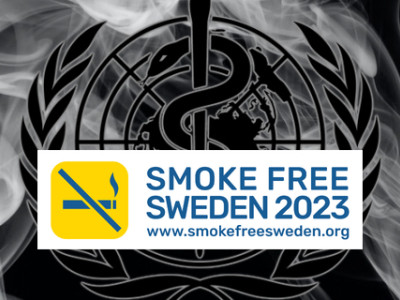Planet of the Vapes reported in 2018 how Doctor Smita Pakhalé was the beneficiary of a grant from the Canadian Institutes of Health Research and planned to study how alternative nicotine products could help the homeless of Ottawa. [link] She found, “a programme focused on tobacco dependence, easily accessible in the community and led by community peers with lived experience is feasible to implement and has the potential to support positive life changes.”
Last year, researchers Lynne Dawkins, Allison Ford, Linda Bauld, Sema Balaban, Allan Tyler, and Sharon Cox revealed results of their study, finding that although a high number of homeless people had tried vaping, they identified barriers preventing them being able to switch permanently. [link]
Dr Cox retained her passion for helping the vulnerable, and spoke to the British Medical Journal earlier in the year, telling it about the importance of vaping for deprived communities during these COVID times: “A higher percentage of smokers, compared to non-smokers, have health conditions like COPD, heart disease and asthma which are made worse by smoking and exacerbated by illness. For these smokers, catching the virus increases their risk of developing complications and is potentially fatal. However, there exist a group of smokers for who the coronavirus poses a greater risk, these are the homeless, those with a serious mental illness or learning needs, and those presenting with drug or alcohol dependence.” [link]
Greater Manchester’s Covid-19 Emergency Committee rehomed the homeless in a string of hotels across the city as part of the lockdown. This presented a golden opportunity to the Greater Manchester Health and Social Care Partnership (GMHSCP) – which helps to deliver the Making Smoking History programme.
With 85% of the homeless population smoking, and smokers being at elevated risk of displaying more severe COVID-19 symptoms, the GMHSCP team offered vape kits and cigalikes to all the re-housed hotel guests who identified as smokers.
The products were supplied free of charge by local independent vape stores and training was delivered to the end users, developed from the barrier findings above.
GMHSCP’s Andrea Crossfield said: “We ensured that all the devices had closed pod systems, so that they were secure to operate and also served to provide reassurance to the support staff and hotels who were working with the residents. We delivered on-site training to the support worker teams based at the hotels, as well as sending in our own staff members who initially handed out the devices to the clients and provided them with operating instructions.”
Darryl Quantz, also from GMHSCP, added: “With the right tools and support, these alternatives to tobacco can be a powerful and accessible way to help address a key health concern in one of our most vulnerable communities. Tobacco needs to be treated as seriously as alcohol and drug use. As the exit strategies get underway for moving residents out of their temporary accommodation, we want to be part of those discussions and promote the wider smoking cessation work that is going on across Greater Manchester.
“We have asked that this nicotine management and smoking cessation work is included in individual care plans for service users who have been in the accommodation – and, where possible, we will continue to provide support as we move into longer term housing arrangements.
“The homeless community has been overlooked for a long time. If we are going to make a lasting impact, we need to be looking ahead to the future and making plans to deliver ongoing support where it is needed the most. This is a huge opportunity to make real and lasting change.”
Andrea concluded: “Thanks to this work, we now have some good training resources which can continue to be deployed in the future. We would also like to continue to explore more peer support work. We’ve seen instances where peer-to-peer engagement has worked very well in this group, across a range of substance misuse issues, so it's an area we want to continue to look at.”
Related:
- NHS Addictions Provider Alliance – [link]
Photo Credit:
Image by José Manuel de Laá from Pixabay
Dave Cross
Journalist at POTVDave is a freelance writer; with articles on music, motorbikes, football, pop-science, vaping and tobacco harm reduction in Sounds, Melody Maker, UBG, AWoL, Bike, When Saturday Comes, Vape News Magazine, and syndicated across the Johnston Press group. He was published in an anthology of “Greatest Football Writing”, but still believes this was a mistake. Dave contributes sketches to comedy shows and used to co-host a radio sketch show. He’s worked with numerous vape companies to develop content for their websites.
Join the discussion
Harm Reduction For The Rich
The United Kingdom risks becoming a harm reduction country only for the wealthy, according to Michael Landl of the World Vapers’ Alliance
CAPHRA Highlights Tobacco Control Flaws
The Coalition of Asia Pacific Tobacco Harm Reduction Advocates highlights the flaws in tobacco control which has led to the rise of black market in Australia
A Missed Opportunity at COP10
The Smoke Free Sweden movement says that COP10 was a missed opportunity to save millions of lives
COP10: Promote Tobacco Harm Reduction
Experts with Smoke Free Sweden are emphasising the urgent need for a Tobacco Harm Reduction approach at COP10












